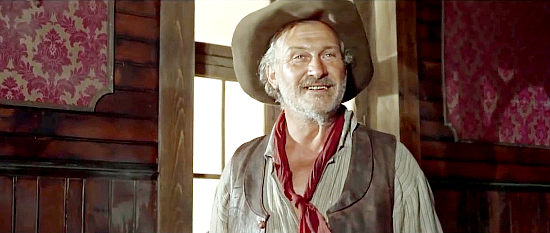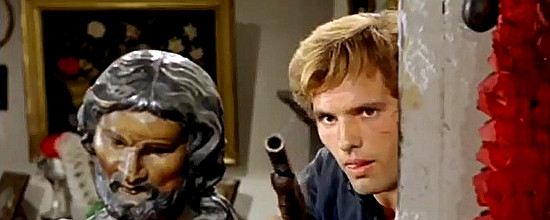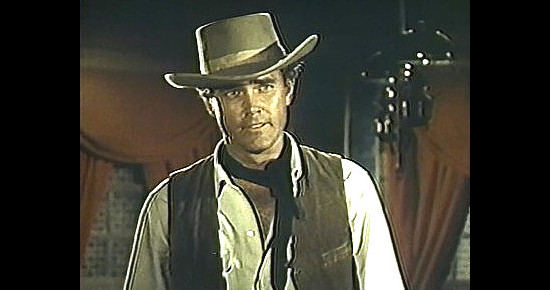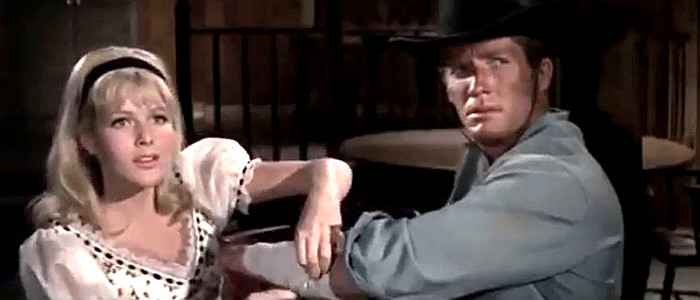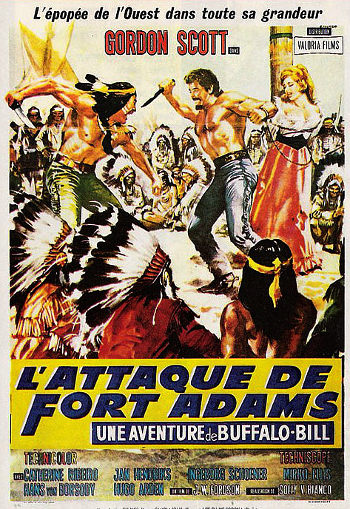 Gordon Scott plays Col. Buffalo Bill, who arrives in Sioux territory to find the Indians on the verge of an uprising.
Gordon Scott plays Col. Buffalo Bill, who arrives in Sioux territory to find the Indians on the verge of an uprising.
A young chief named Yellow Hand is up to no good. A commanding cavalry officer named Col. Peterson operates under a good-Indians-are-dead-Indians policy, and that’s not helping matters.
But the real problem is that someone’s running guns to the Indians and helping stir up trouble among the Sioux.
And when the more peaceful Chief White Fox returns to the tribe, the whites behind the gun running kidnap his daughter with Yellow Hand’s help and tell the chief that cavalrymen are behind her abduction.
In turn, the Indians capture the colonel’s daughter Mary and her lover Capt. Hunter, with plans to burn both of them at the stake.
That doesn’t leave Bill with much time to sort out the bad guys from the good guys and figure out who’s behind all the trouble.
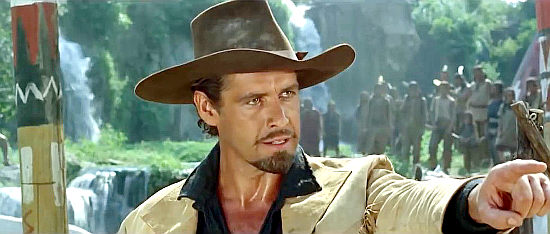
Gordon Scott as Buffalo Bill, issuing a warning to the Sioux chief in Buffalo Bill, Hero of the Far West (1965)
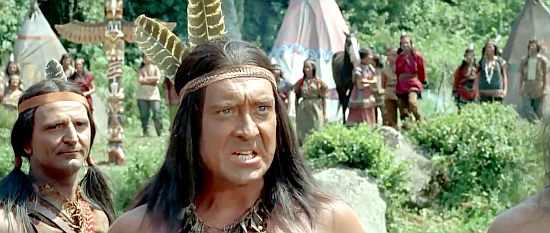
Mirko Ellis as Yellow Hand, the Indian chief behind all the trouble in Buffalo Bill, Hero of the Far West (1965)
One of the earliest Spaghetti Westerns, missing much of the flair of what made those films so special (when done well), this is a straightforward tribute to the title character. Not to mention a collection of lots of the cliches you’d find in any American-made Cavalry vs. Indian B-Western, albeit with a larger cast.
So we have two attacks on the fort, Buffalo Bill saving the day twice in the first 20 minutes, the threat that all the tribes will unite to cleanse the West with the white man’s blood, and a commanding officer who disapproves of his daughter romancing another officer because the West is such a tough place for women.
Oh, and don’t forget the Indian style duel near the end to sort out who’s telling the truth and who isn’t. Which offers Gordon Scott a chance to strip to the waist and show off the muscle-bound frame that carried him to fame. The good news: Director Costa keeps the action coming fast and furious. But for man who preaches peace with the Indians, Buffalo Bill sure kills more than his fair share.
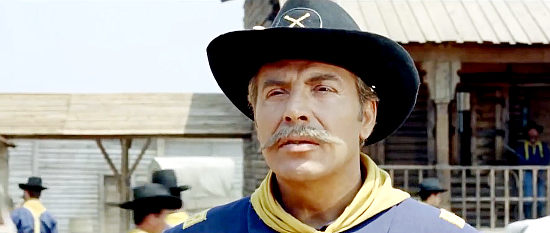
Roldano Lupi as the Indian-haiting Col. Peterson, who finds himself under Bill’s orders, in Buffalo Bill, Hero of the Far West (1965)
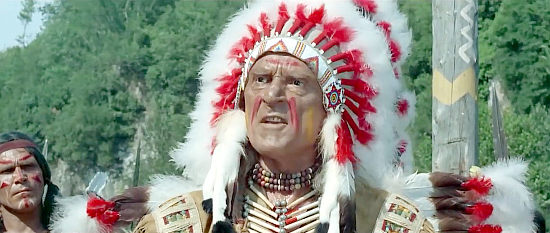
Feodor Chaliapin Jr. as White Fox, the chief who wants peace with the whites in Buffalo Bill, Hero of the Far West (1965)
Directed by:
Mario Costa
Cast:
Gordon Scott … Buffalo Bill
Mirko Ellis … Yellow Hand
Feodor Chaliapin Jr. … White Fox
Catherine Ribeiro … Silver Moonray
Jan Hendriks … Jack Monroe
Mario Brega … Big Sam Donaldson
as Richard Stuyvesant
Piero Lulli … Red
Hans von Borsody … Capt. George Hunter
Roldano Lupi … Col. Peterson
Ingeborg Schoner … Mary Peterson
Ugo Sasso … Snack
Also with: Franco Fantasia as Frank Farrel, Andrea Scotti as as Andrew Scott, Jacques Herlin, Ronald Parish, Luigi Tosi, Osiride Pevarello, Aldo Zamperla
aka:
Buffalo Bill, l’eroe del far west
Buffalo Bill
Attack at Fort Adams
Music: Carlo Rustichelli
Runtime: 93 min.
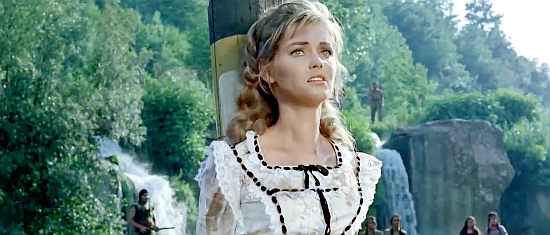
Ingeborg Schoner as Mary, tied to a stake with fire at her feet in Buffalo Bill, Hero of the Far West (1965)
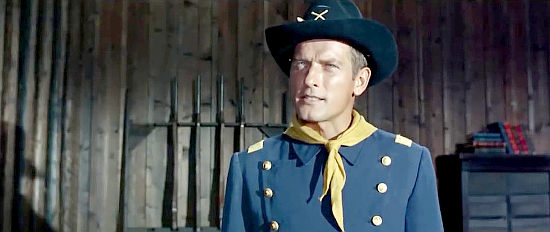
Hans von Borsody as Capt. Hunter, balking at his commanding officer’s demand that he stop romancing Mary in Buffalo Bill, Hero of the Far West (1965)
Memorable lines:
Snack, wagon train scout: “We might all end up getting ourselves scalped, but you haven’t got a thing to worry about.”
Turns out there were lots of reason to worry.
Yellow Hand: “Here is your yellow sand. Don’t forget you promised you would bring more guns, many more … You warn your leader, the great buffalo hunter has returned.”
Gun runner: “Buffalo Bill? Where is he? Is he at Fort Adams?”
Yellow Hand: “The trail of the buffalo hunter is long, and there are many grave dangers. Farewell.”
Mary: “I’m your daughter, so hear me out. Please don’t tell me who I can love because I have no intentions of obeying your orders.”
Col. Peterson: “So it’s come to this, has it? Open rebellion.”
Buffalo Bill, after Wise Fox’s daughter has treated his wound: “Silver Moonray has grown up and learned useful things.”
White Fox: “Many moons have passed. The fruit of the tree blossoms while the trunk becomes withered. But there is no withering of our friendship.”
Snack: “Do you believe in God, Miss Mary.”
Mary: “Of course.”
Snack: “Well, you better start praying. Because if Bill gets himself killed, we’re sure gonna wish we’d never been born.”
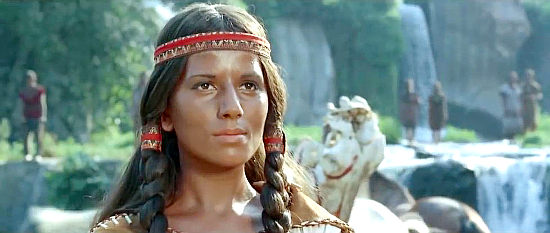
Catherine Ribeiro as Silver Moonray, daughter of White Fox and a friend of Bill’s in Buffalo Bill, Hero of the Far West (1965)
Trivia:
One of the very first European Westerns, released within days of Sergio Corbucci’s “Minnesota Clay” and Sergio Leone’s “A Fistful of Dollars.”
Two of the baddies in the film are played by Piero Lulli and Mario Brega, who would become familiar faces for Spaghetti Western fans.
A rare Spaghetti Western appearance by former Tarzan Gordon Scott, who made a number of Sword and Sandal films in Europe before retiring from the screen in 1967.
Scott fell in love with co-star Vera Miles during the filming of his first Tarzan movie in 1954. They married, had one son, but divorced in 1960 after four years of marriage.
Scott died in 2007 at age 80 in Baltimore, Md., from complications following heart surgery, according to his obituary in the New York Times. He lived the finals years of his life in a couple’s spare room; the husband was a longtime fan.
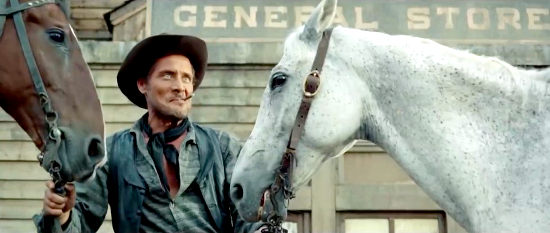
Piero Lulli as Red, one of gun-runner Monroe’s henchmen in Buffalo Bill, Hero of the Far West (1965)
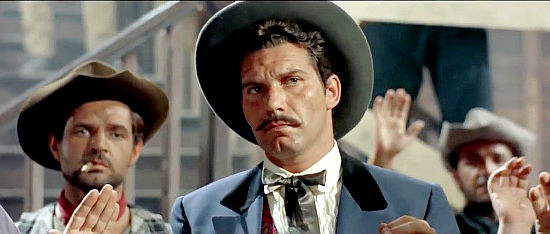
Jan Hendriks as Monroe, saloon owner and man behind the gun running in Buffalo Bill, Hero of the Far West (1965)
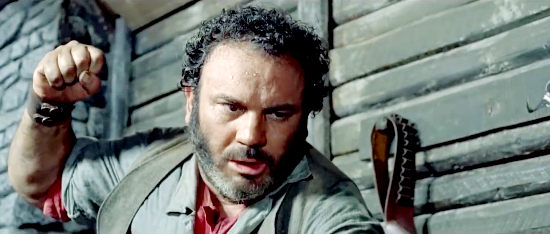
Mario Brega as Big Sam Donaldson, one of the men who does Monroe’s bidding in Buffalo Bill, Hero of the Far West (1965)
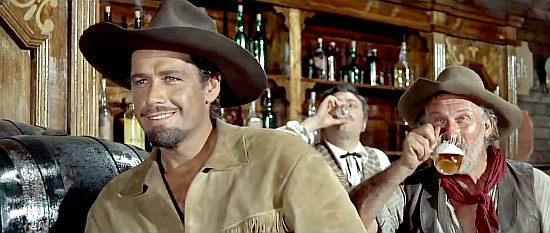
Gordon Scott as Buffalo Bill and Ugo Sasso as Snack, enjoying some time in the local saloon in Buffalo Bill, Hero of the Far West (1965)
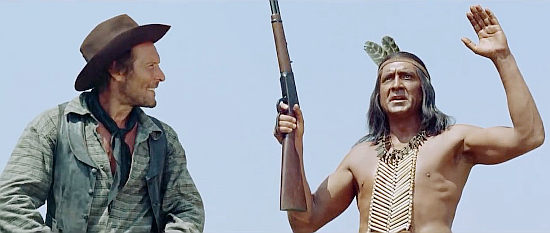
Piero Lulli as Red and Mirko Ellis as Yellow Hand, celebrating the possible demise of Bill in Buffalo Bill, Hero of the Far West (1965)
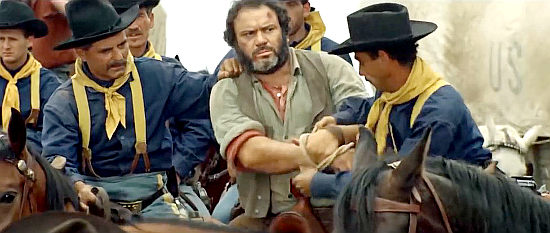
Mario Brega as Big Sam Donaldson, taken into custody for suspected gun-running in Buffalo Bill, Hero of the Far West (1965)
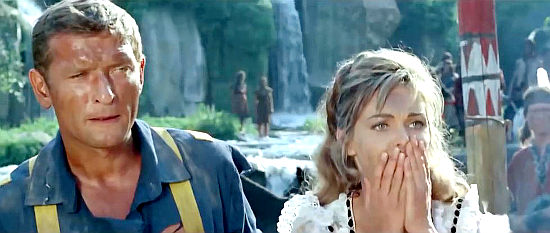
Hans von Borsody as Capt. Hunter and Ingeborg Schoner as Mary react to Bill’s showdown with Yellow Hand in Buffalo Bill, Hero of the Far West (1965)
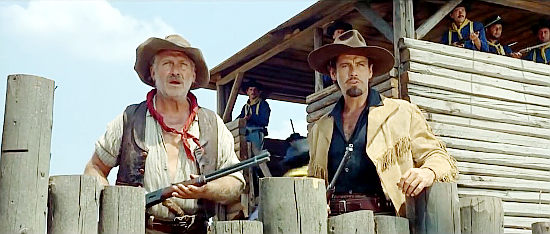
Ugo Sasso as Snack and Gordon Scott as Buffalo Bill as the Indians prepare to attack in Buffalo Bill, Hero of the Far West (1965)

